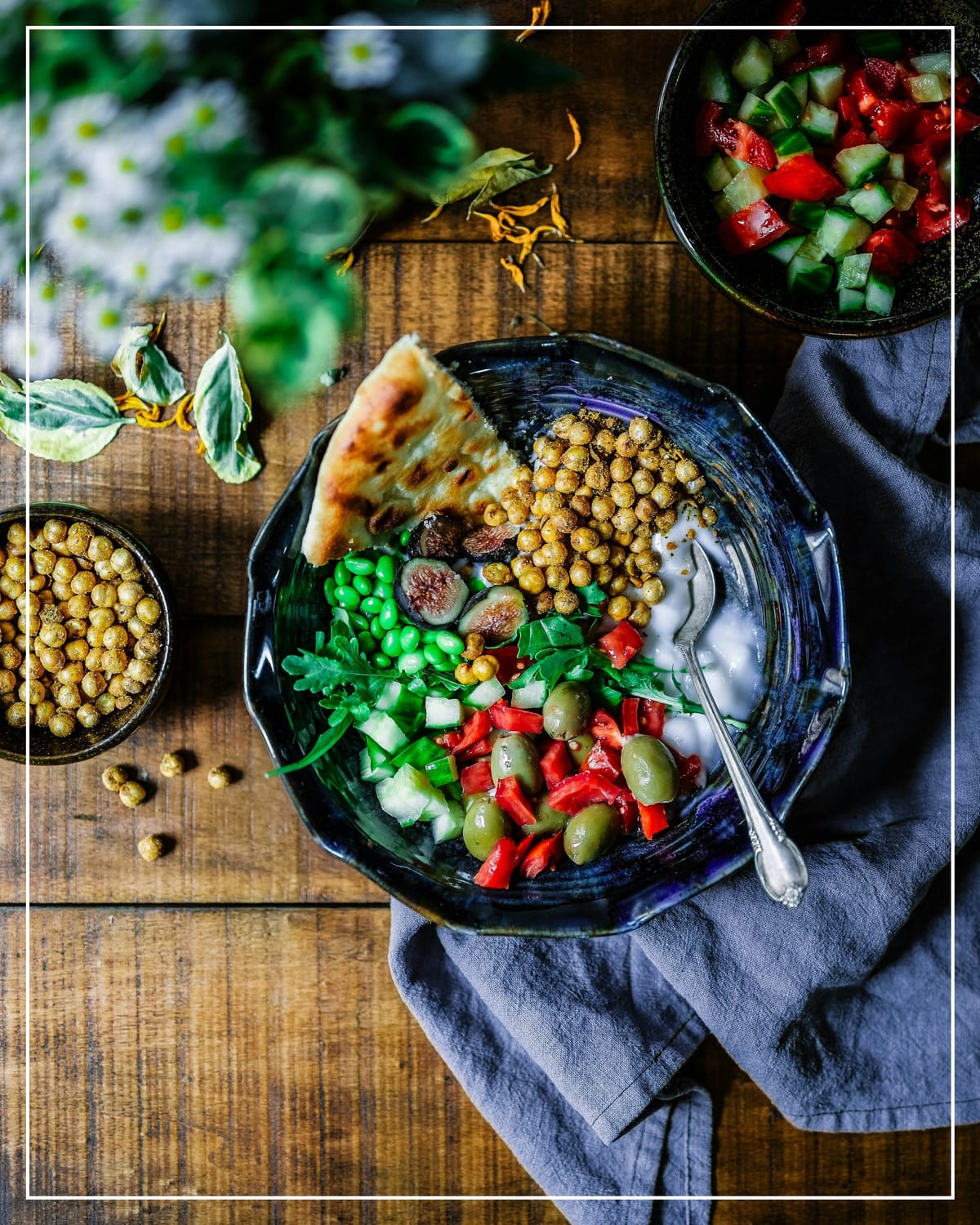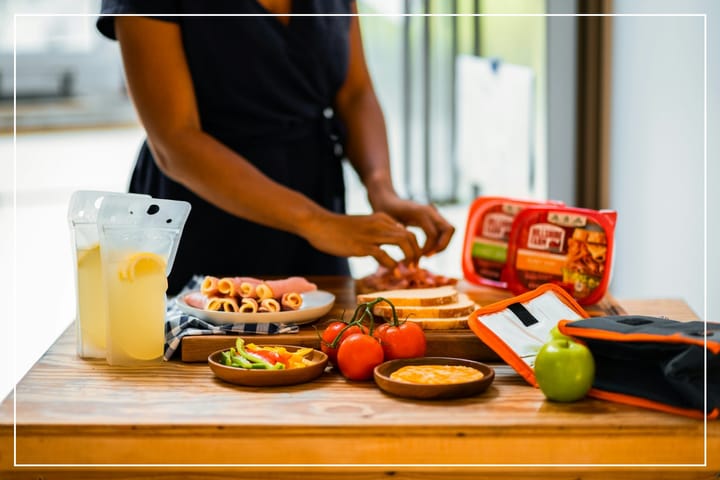High Protein Snacks During Pregnancy: Essential Nutrition for You and Your Baby
Discover the best high-protein snacks to support your health and your baby’s development during pregnancy. From Greek yogurt and nuts to hummus and veggies, learn how to incorporate delicious, protein-packed snacks into your daily routine.

Pregnancy is a time when your body requires extra nutrients, not just to sustain your own health but also to support the growth and development of your baby. Protein is one of the most important nutrients during pregnancy, as it plays a crucial role in the formation of fetal tissue, including your baby’s brain, heart, and muscles. It’s also essential for maintaining your own muscle mass and keeping your energy levels stable.
In this guide, we’ll explore the benefits of protein during pregnancy, how much protein you need, and provide a range of easy and delicious high-protein snack ideas to keep you and your baby healthy.
Table of Contents
- Why Protein is Important During Pregnancy
- How Much Protein Do You Need?
- Benefits of High Protein Snacks During Pregnancy
- Best High Protein Snacks for Pregnant Women
- How to Incorporate More Protein Into Your Diet
- Protein Sources for Different Dietary Preferences
- Conclusion: Satisfy Your Cravings While Staying Healthy
Why Protein is Important During Pregnancy
Protein is a vital macronutrient for pregnant women because it helps build, repair, and maintain tissues in both you and your growing baby. It’s especially important for the development of your baby’s organs and tissues, including the brain, heart, and muscles.
Key Roles of Protein in Pregnancy:
- Supports Fetal Growth: Protein helps form the building blocks of your baby’s body, ensuring proper development of the brain, muscles, and other organs.
- Maintains Maternal Health: It helps maintain your muscle mass and keeps your immune system strong.
- Stabilizes Blood Sugar: Protein-rich snacks can help prevent energy crashes and manage pregnancy-related blood sugar fluctuations, which is particularly important for preventing gestational diabetes.
- Increases Energy Levels: Protein provides a steady source of energy, helping you avoid fatigue during pregnancy.
How Much Protein Do You Need?
According to the American Pregnancy Association, the average pregnant woman needs about 75 to 100 grams of protein per day, depending on her weight and activity level. This is significantly higher than the daily recommendation for non-pregnant women, and it’s important to spread your protein intake throughout the day to maximize absorption and energy levels.
Tips for Meeting Your Protein Needs:
- Include a protein-rich food with each meal and snack.
- Opt for lean protein sources to avoid excess saturated fats.
- Use high-protein snacks to fill gaps between meals and keep energy levels stable.
Benefits of High Protein Snacks During Pregnancy
High protein snacks are not only essential for meeting your daily protein needs, but they also offer additional benefits that make pregnancy more manageable. Here’s why you should incorporate protein-rich snacks into your daily routine:
1. Prevents Energy Dips
Pregnancy can take a toll on your energy levels, especially in the second and third trimesters. High-protein snacks provide a slow-release source of energy, helping you avoid mid-day fatigue and stay active throughout the day.
2. Curbs Hunger and Reduces Cravings
Protein is known to be more satiating than carbs or fats, meaning it keeps you fuller for longer. Including protein-rich snacks helps curb hunger pangs and can reduce cravings for unhealthy, sugary foods.
3. Supports Healthy Weight Gain
While it’s normal and necessary to gain weight during pregnancy, maintaining a healthy balance of nutrients is key. Protein helps you gain healthy weight by promoting muscle growth and supporting fetal development.
4. Balances Blood Sugar Levels
Protein helps regulate blood sugar levels by slowing down the absorption of glucose. This is especially beneficial for pregnant women who are at risk of developing gestational diabetes or experiencing blood sugar fluctuations.
Related Reading:

Best High Protein Snacks for Pregnant Women
Finding protein-rich snacks that are both nutritious and easy to prepare is key to staying healthy during pregnancy. Here are some of the best high-protein snacks to keep you energized and nourished:

1. Greek Yogurt with Nuts
Greek yogurt is packed with protein—around 10 to 15 grams per serving—making it a great snack choice. Topping it with a handful of almonds or walnuts adds healthy fats, fiber, and an extra protein boost.
How to Prepare:
- Choose plain, unsweetened Greek yogurt to avoid added sugars.
- Add nuts, seeds, or fresh fruit for added flavor and nutrients.
Protein Content: 15–20 grams per serving.
2. Hard-Boiled Eggs
Eggs are one of the best sources of high-quality protein, providing about 6 grams of protein per egg. They’re also rich in choline, which supports brain development in your baby.
How to Prepare:
- Boil a batch of eggs at the start of the week for easy grab-and-go snacks.
- Pair with whole-grain toast or avocado for a balanced snack.
Protein Content: 6 grams per egg.
3. Cottage Cheese and Fruit
Cottage cheese is another high-protein dairy option that can be paired with fresh or dried fruit for a satisfying snack. It’s a great source of calcium and phosphorus, which support bone health for both you and your baby.
How to Prepare:
- Choose low-fat or full-fat cottage cheese based on your preference.
- Add berries, peaches, or melon for natural sweetness and added fiber.
Protein Content: 13–15 grams per serving.
4. Hummus and Veggies
Hummus is made from chickpeas, which are a plant-based source of protein. Pairing it with crunchy vegetables like carrots, cucumber, or bell peppers makes for a nutritious, high-fiber snack that’s also rich in vitamins.
How to Prepare:
- Keep pre-cut vegetables in your fridge for easy snacking.
- Add a tablespoon of olive oil to your hummus for extra healthy fats.
Protein Content: 5–8 grams per serving.
5. Trail Mix
A homemade trail mix made with nuts, seeds, and a little dried fruit is a portable, protein-rich snack perfect for when you’re on the go. Nuts and seeds provide healthy fats, fiber, and protein, while dried fruit adds natural sweetness.
How to Prepare:
- Mix almonds, walnuts, sunflower seeds, and dried cranberries.
- For a special treat, add a few dark chocolate chips.
Protein Content: 6–8 grams per serving.
6. Protein Smoothies
Smoothies are an easy way to pack in extra protein, especially if you add Greek yogurt, protein powder, or nut butter. You can customize smoothies with fresh fruits, leafy greens, and seeds for a nutrient-dense snack.

How to Prepare:
- Blend a scoop of protein powder, a handful of spinach, half a banana, and almond milk for a refreshing smoothie.
- Add chia seeds for an extra boost of fiber and omega-3s.
Protein Content: 15–25 grams per serving.
7. Cheese and Whole Grain Crackers
Cheese provides a good source of protein and calcium, while whole grain crackers add fiber and complex carbohydrates. This combination makes for a filling snack that satisfies cravings.
How to Prepare:
- Choose hard cheeses like cheddar or gouda for higher protein content.
- Pair with whole-grain crackers or rice cakes.
Protein Content: 8–10 grams per serving.
8. Nut Butter and Apple Slices
Nut butters like almond or peanut butter are rich in protein and healthy fats. Pairing them with apple slices provides a sweet, crunchy, and satisfying snack.
How to Prepare:
- Slice an apple and spread 1–2 tablespoons of your favorite nut butter on top.
- Add a sprinkle of cinnamon for extra flavor.
Protein Content: 5–7 grams per serving.
9. Tuna Salad
Canned tuna is an excellent source of lean protein and omega-3 fatty acids, which are essential for your baby’s brain development. Be sure to choose low-mercury tuna options like skipjack or light tuna.
How to Prepare:
- Mix canned tuna with a little olive oil or Greek yogurt and add chopped celery or onions for crunch.
- Serve with whole-grain crackers or on a slice of whole-grain toast.
Protein Content: 20–25 grams per serving.

How to Incorporate More Protein Into Your Diet
Incorporating high-protein snacks into your daily routine can be an easy and delicious way to meet your protein needs during pregnancy. Here are some simple tips for boosting your protein intake throughout the day:

1. Start Your Day with Protein
Breakfast is the perfect time to include protein in your diet. Consider options like scrambled eggs, Greek yogurt with granola, or a protein-packed smoothie to start your day on the right foot.
2. Snack Smart
Instead of reaching for carb-heavy snacks, opt for protein-rich alternatives like cottage cheese, hard-boiled eggs, or hummus with veggies. These snacks will help keep your energy levels stable and keep hunger at bay.
3. Add Protein to Every Meal
For lunch and dinner, include lean proteins like chicken, fish, tofu, or legumes. Incorporating beans, lentils, or quinoa into soups, salads, and stir-fries is a great way to boost your intake.
4. Use Protein Supplements When Needed
If you’re struggling to meet your protein needs through food alone, consider adding a protein supplement. Protein powders made from whey, pea, or soy protein can be easily added to smoothies or oatmeal.
5. Batch Prepare Protein Snacks
To make high-protein snacking easier, prepare snacks in bulk. Boil a dozen eggs, make a large batch of hummus, or prepare protein smoothie packs that you can blend up in minutes.

Protein Sources for Different Dietary Preferences
Whether you follow a vegetarian, vegan, or omnivorous diet, there are plenty of protein sources available to support your pregnancy. Here are some protein-rich options based on different dietary preferences:
1. Omnivores
If you consume both plant and animal products, you have a wide variety of protein sources available:
- Eggs: High in protein and versatile for many meals.
- Lean meats: Chicken, turkey, and lean beef are excellent sources of protein and iron.
- Fish: Low-mercury fish like salmon, sardines, and tuna provide protein and essential omega-3s.
2. Vegetarians
For vegetarians, plant-based sources of protein can help meet your daily needs:
- Dairy: Greek yogurt, cottage cheese, and milk provide high-quality protein and calcium.
- Eggs: Rich in protein and a good source of choline, which is important for brain development.
- Legumes: Lentils, beans, and chickpeas are great plant-based sources of protein.
3. Vegans
Vegan mothers can also meet their protein needs through a variety of plant-based sources:
- Tofu and Tempeh: Both tofu and tempeh are soy-based, high-protein options that work well in stir-fries, sandwiches, and salads.
- Legumes and Pulses: Beans, lentils, and peas are excellent vegan protein sources and can be used in soups, stews, and grain bowls.
- Nuts and Seeds: Almonds, chia seeds, hemp seeds, and flaxseeds provide healthy fats and protein.
Book Reference: For more information on plant-based eating during pregnancy, check out the everything vegan pregnancy book by Reed Mangels.
Conclusion: Satisfy Your Cravings While Staying Healthy
Eating a protein-rich diet during pregnancy is essential for supporting your baby’s growth and maintaining your energy levels. High-protein snacks can help prevent hunger, provide essential nutrients, and ensure you’re getting the calories you need for a healthy pregnancy.
By incorporating a variety of protein sources—whether from dairy, meat, or plant-based options—you can meet your nutritional needs and enjoy satisfying snacks throughout the day. Remember, planning ahead and preparing snacks in advance will make it easier to stay on track with your pregnancy diet while enjoying every bite.
Whether you prefer a quick snack like hard-boiled eggs or want to get creative with protein smoothies, there’s no shortage of tasty, high-protein options to keep both you and your baby healthy and energized.



